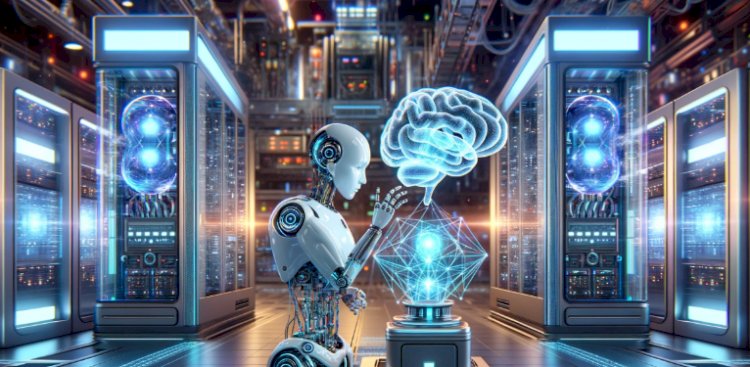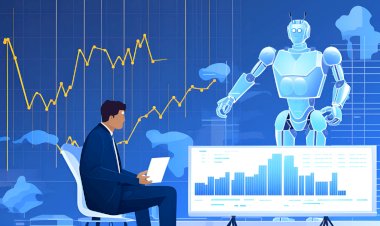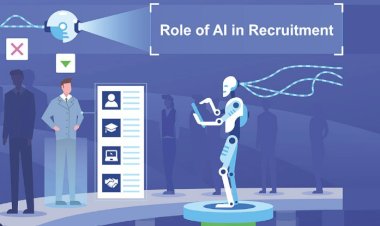The Fusion of Artificial Intelligence and Quantum Computing: Transforming the Future

Introduction
In the realm of advanced technologies, there are two emerging fields that hold immense potential for transforming our world. Artificial intelligence (AI) and quantum computing are on a collision course, creating new possibilities that were once confined to the realms of science fiction. This article delves into the exciting fusion of AI and quantum computing, exploring their individual contributions and the synergistic effects of their combination.
Understanding Artificial Intelligence
Artificial intelligence refers to the development of systems and machines that can perform tasks which would typically require human intelligence. AI relies on algorithms and models to interpret, analyze, and use data to make informed decisions or carry out specific actions. This branch of computer science has paved the way for breakthroughs in a wide range of industries, including healthcare, finance, robotics, and more.
The Fundamentals of Quantum Computing
Quantum computing, on the other hand, harnesses the principles of quantum physics to process and manipulate information. Unlike classical computing that relies on binary digits (bits) known as 0s and 1s, quantum computing leverages quantum bits (qubits). These qubits can exist in multiple states simultaneously, enabling exponential computational power and unlocking previously unsolvable problems.
Synergistic Effects of AI and Quantum Computing
The combination of AI and quantum computing holds tremendous potential, as each field complements the other’s limitations. Quantum computing can enhance the capabilities of AI algorithms by significantly speeding up calculations and optimizing complex problem-solving. Simultaneously, AI can assist quantum computing by improving the efficiency of data analysis and decision-making processes.
Advancements in Machine Learning
Machine learning algorithms form the backbone of AI systems, enabling them to learn from data and improve their performance over time. Quantum computing can enhance machine learning models by more efficiently processing vast amounts of data and extracting patterns that were previously inaccessible. This synergy can lead to advancements in image and speech recognition, natural language processing, recommendation systems, and predictive modeling.
Solving Complex Optimization Problems
Quantum computing excels in tackling optimization problems, finding the best possible solutions in highly complex scenarios. By incorporating AI algorithms, quantum computers can analyze diverse data sets, making informed decisions, and maximizing efficiency. This opens up new avenues for optimizing logistics and transportation networks, energy distribution systems, and supply chain management.
Accelerating Drug Discovery and Development
Pharmaceutical research and development often involve extensive trial and error, consuming significant time and resources. The combination of AI and quantum computing can expedite drug discovery processes by simulating molecular interactions, predicting drug efficacy, and optimizing protein folding models. This fusion has the potential to revolutionize healthcare by rapidly identifying new drug compounds and personalized treatment options.
Implications and Challenges
While the fusion of AI and quantum computing presents remarkable opportunities, it is not without its challenges. Interdisciplinary collaboration, ethical considerations, and the need for robust security measures are crucial aspects that must be addressed. The integration of quantum computing with AI systems also requires significant computational power and infrastructure improvements.
Conclusion
The convergence of artificial intelligence and quantum computing represents a monumental leap forward in the realm of technology. The synergy between these two fields brings forth unprecedented potential to solve seemingly insurmountable problems across various sectors. As researchers continue to explore the fascinating possibilities, society is on the cusp of witnessing a technological revolution that will reshape the future.




















